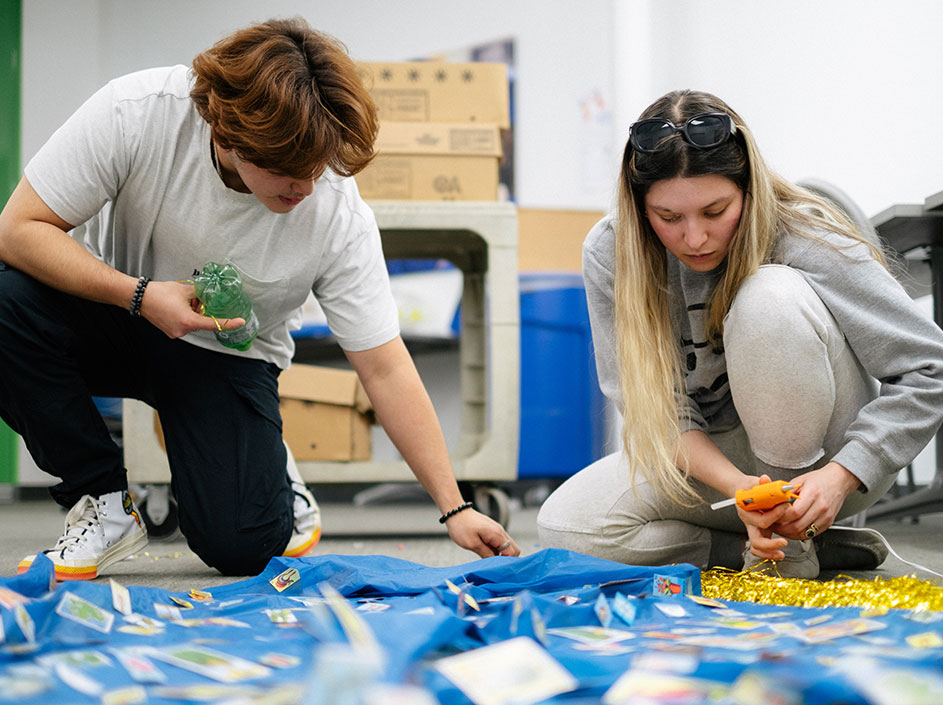Thinking green in the classroom
 Published June 13, 2024
Published June 13, 2024
College of Lake County (CLC) practices sustainability across the college in its usage of renewable resources, emphasis on protecting natural areas and through classroom education. In the fall, faculty took the optional Engaging Students in Sustainability development course to learn about different ways sustainability could be integrated into the classroom experience.
“Sustainability is a topic that’s not only important for us at the college to think about, but also for our students to engage in,” said Psychology Instructor Matthew Rasmussen.
In the course, faculty learned about many different definitions of sustainability, one being the 17 Sustainable Development Goals (SDGs) developed by the United Nations. These goals drove the different lessons instructors created.
Some faculty, like Precision Machining Instructor Eric Anderson, chose to use this as an opportunity to make big improvements to classroom practices.
“There’s lots of scrap and chemical waste in the process of making goods,” Anderson said. “The students come up with great ways to reduce waste. This was something I wanted to improve on, and this was a chance.”
Anderson has been able to implement things right away. Some solutions students came up with included separating scraps for reuse instead of mixing them together and using new tools to limit the amount of chemical being used at once to lower waste.
In instructor Kalyn Herzog’s veterinary course, students spend time working at different partner clinics. Her project involved students taking a survey of sustainability at the clinics they worked at.
"I was impressed with how thorough the students' sustainability audit reports were,” Herzog said. “They showed a strong interest in learning more about sustainability in veterinary medicine and how businesses can improve their efforts."
Other faculty chose to use sustainability as a topic for classwork. In Cynthia Henderson’s critical thinking course, students focused on the topic of plastics. Using the SDGs, students thought about possible solutions at a global level. Riyanti Boyd’s statistics class used data about food security as a basis for regular lessons in class.
“One of the most fulfilling aspects about the course is that every faculty member mentioned how they wanted to continue to include sustainability in courses,” Rasmussen said. "As a college, we know students are interested in sustainability, so it’s good to capture that interest and bring it into the classroom.”
